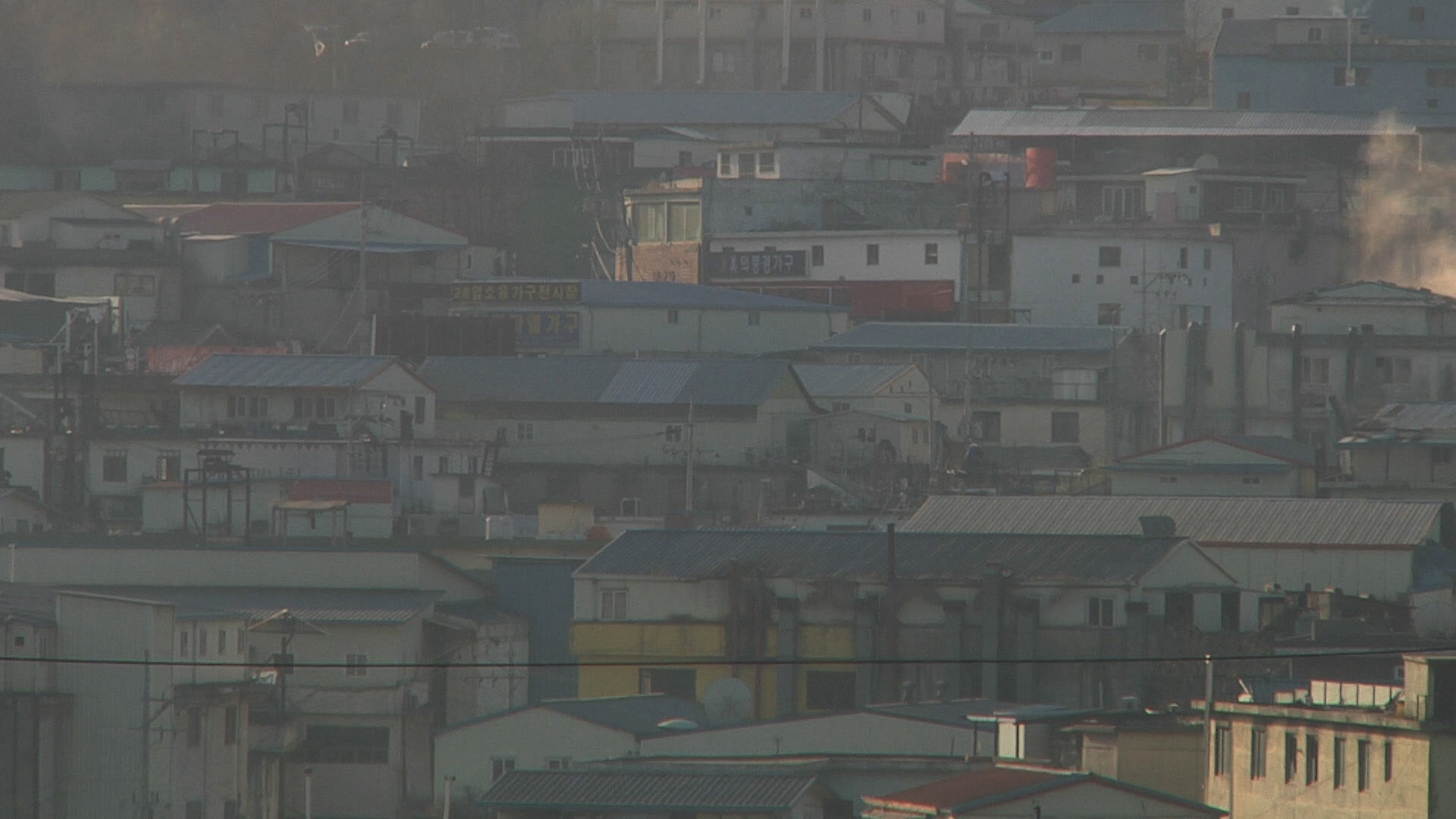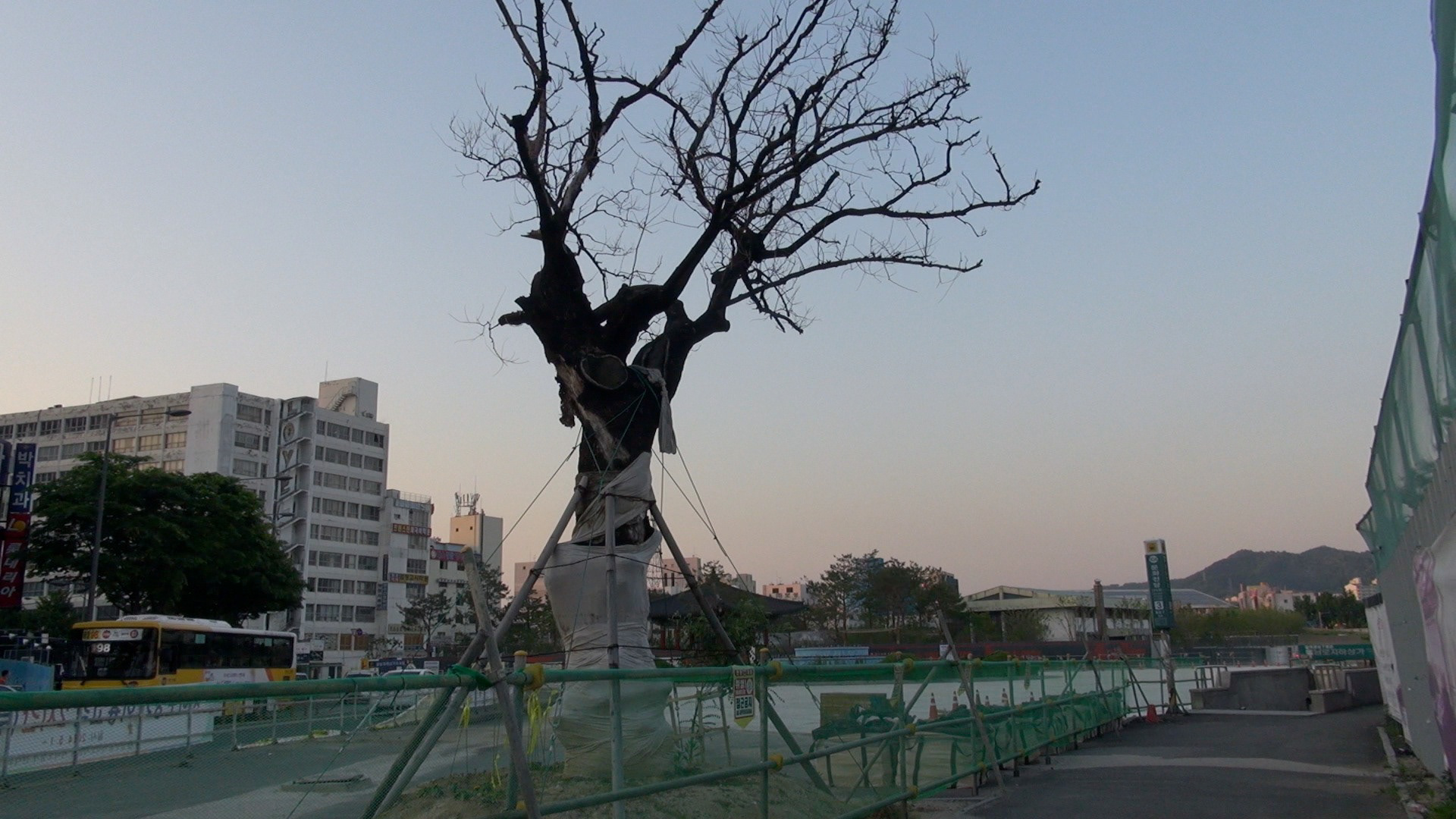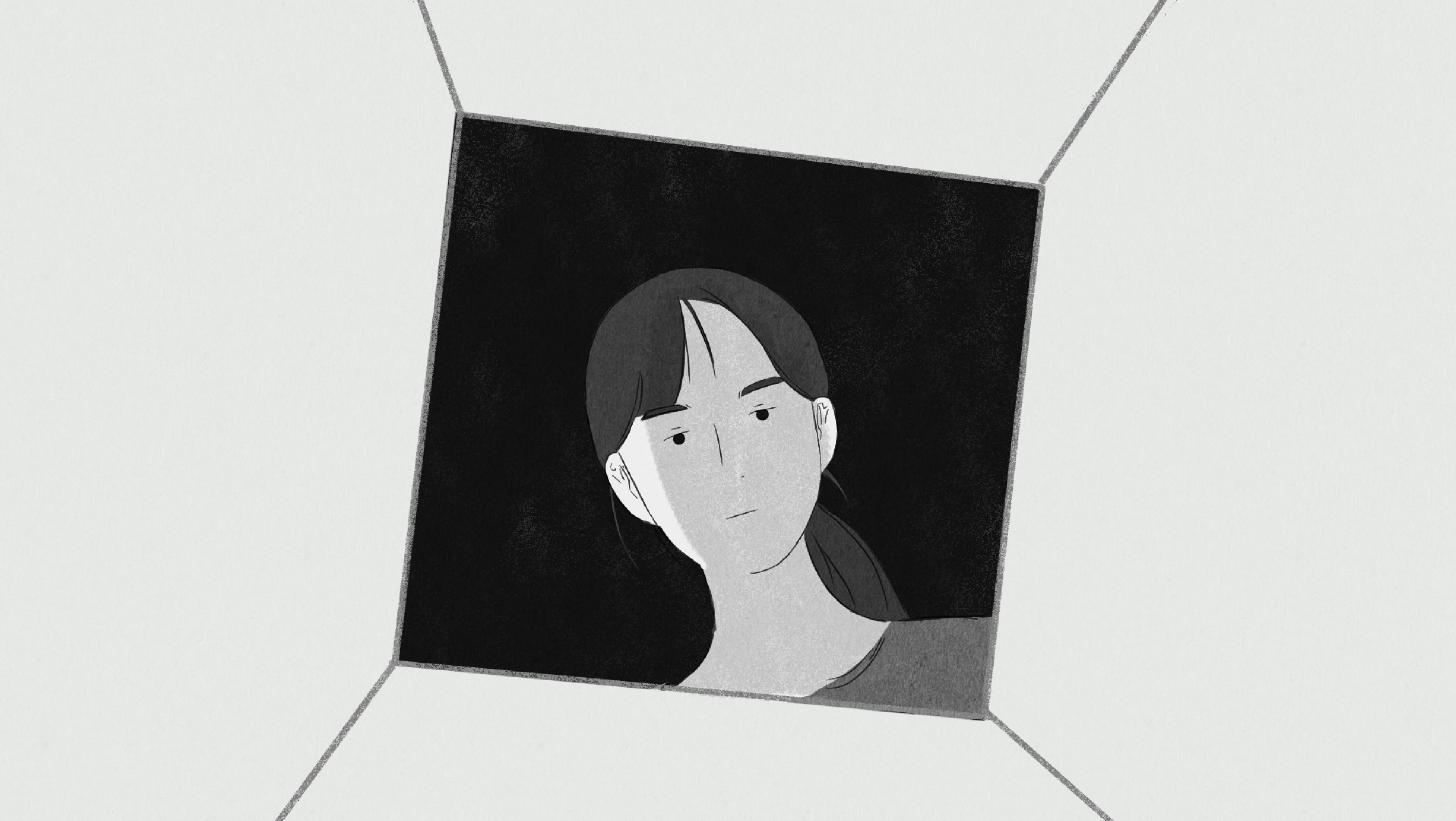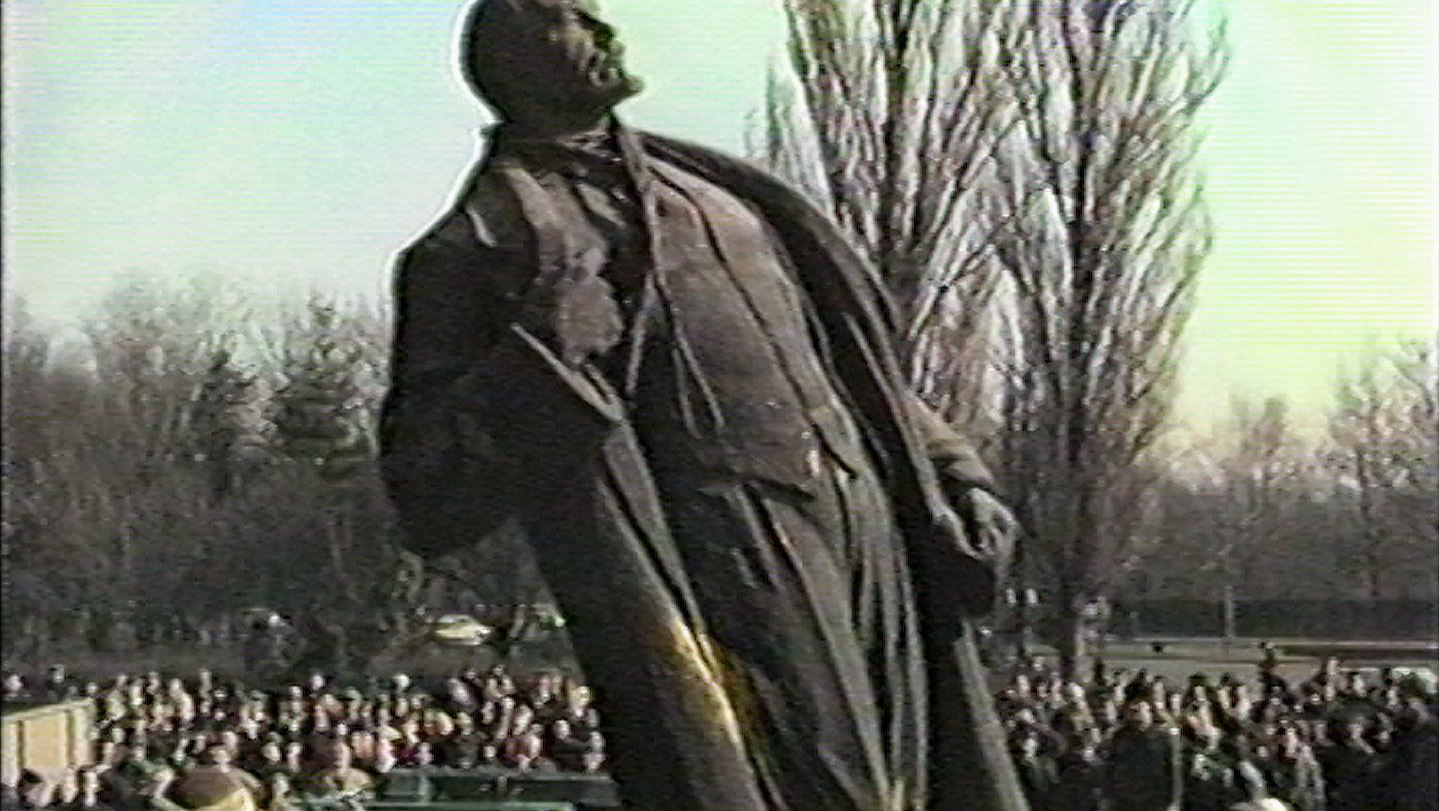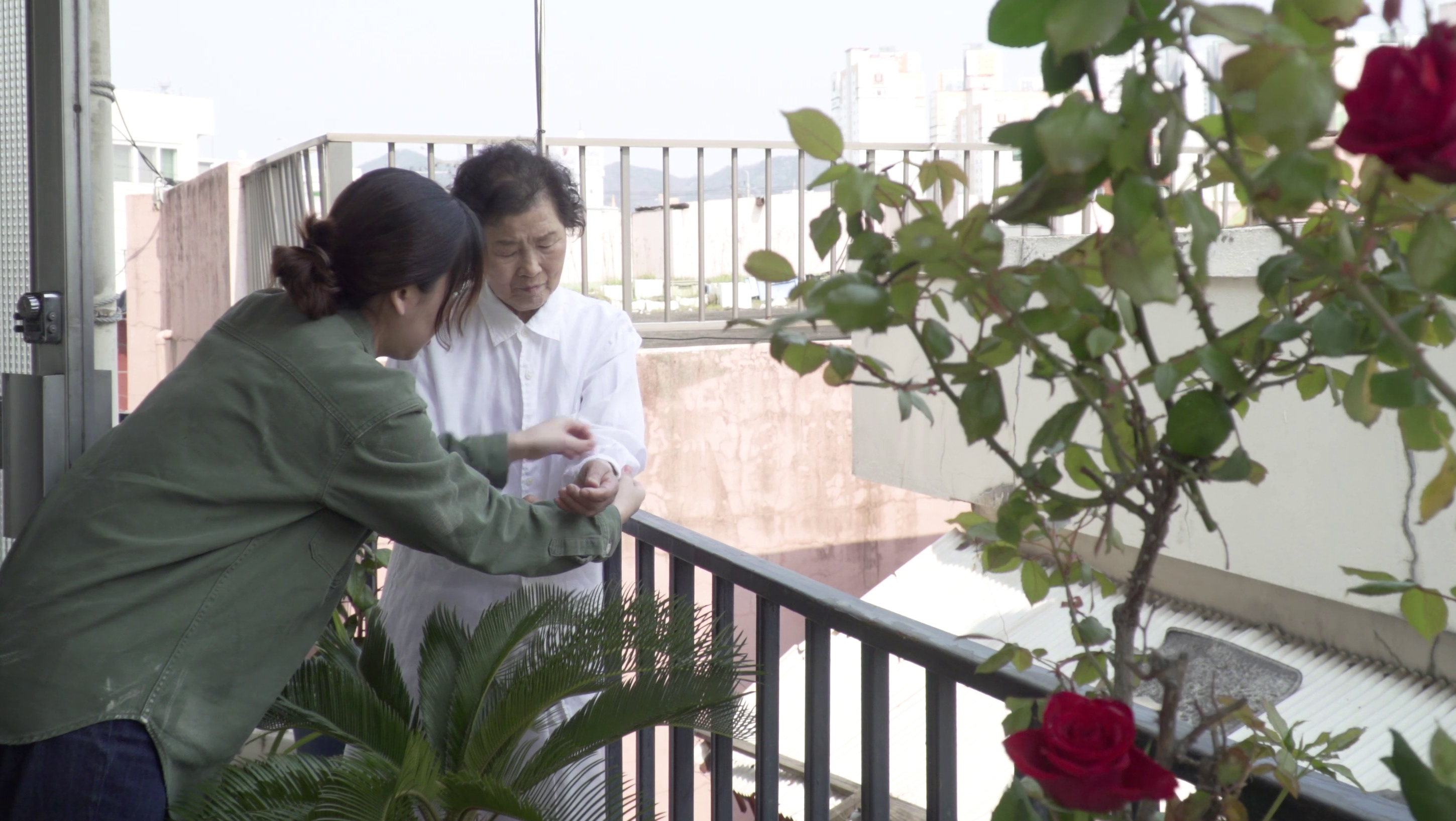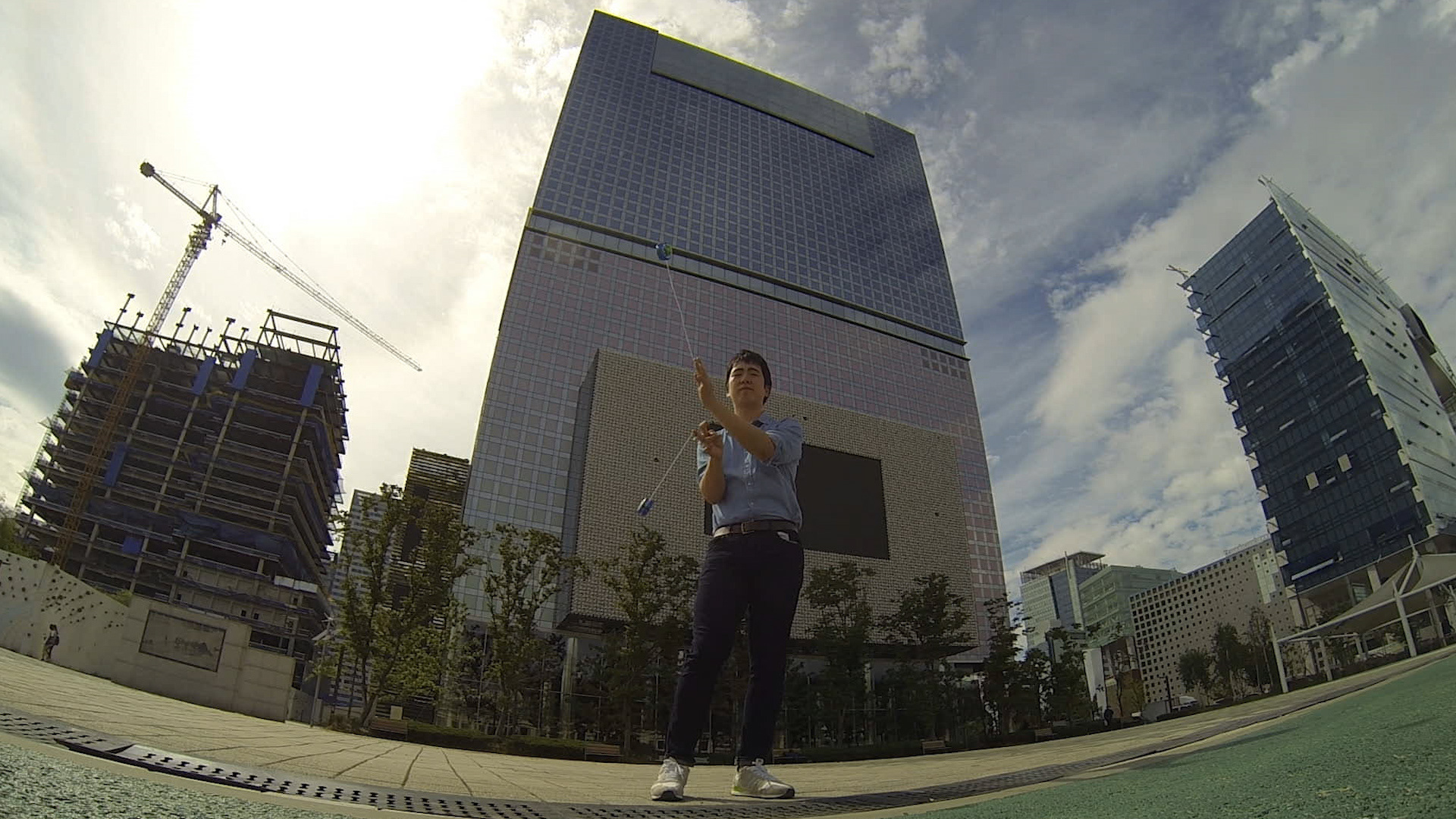Poltergeist Review 목소리 리뷰
화면이 밝아지면 덩그러니 의자가 놓여있다. 누군가가 앉아있었을 자리는 이제 비어있다. 다시 화면은 어두운 집안으로 들어간다. 마석 가구공단의 텅빈 기숙사. 먼지가 잔뜩 쌓인 공간이지만, 누군가 지냈던 흔적이 고스란히 남아있다. 손으로 그린 그림, 구겨진 캔, 벽에 걸린 옷. 그 공간을 비집고 목소리가 들린다. 18년간 한국에서 생활한 버마 출신의 마흔 한 살의 노동자 에이씨다. 에이씨는 마흔 살 나이의 절반 가까운 시간을 한국에서 보냈지만 그에게 한국은 더 이상 미래를 꿈꿀 수 있게 하는 곳이 아니었다. 다시 살기 위해 떠난 그. 에이씨를 불법체류자, 이주노동자라 호명하는 한국에서 그는 어떤 기억을 안고 떠났을까? 영화의 엔딩장면에서 비춰지는 노동자 집회 장면은 이 영화가 전하고자 하는 메시지를 강하게 뒷받침한다. 한국사회에서 이주노동자들의 자리는 여전히 비어있다.
When the screen lights up, there is a chair. The place where someone would have sat is now empty. Again the screen goes into a dark house. There is an empty dormitory in the Maseok Furniture Complex. Although the space is full of dust, traces of someone's life remain intact. You could watch hand-painted paintings, crumpled cans, and clothes on the wall. you can hear someone's voice pushing through the space. 'A' who is a 41-year-old worker from Burma and he has lived in Korea for 18 years. 'A' spent nearly half her time in Korea at the age of 40, but for him, Korea was no longer a place to dream of the future. What kind of memories did he leave with in Korea, where he calls himself an illegal immigrant and migrant worker? The scene of the workers' rally in the ending scene of the movie strongly supports the message the film is trying to convey. The post of migrant workers in Korean society is still vacant.
by 한영희 Han Young-hee(Filmmaker, Indie Forum 2018)
영화는 폐허 공간 위 버려진 빈 의자에서 시작한다. 영화는 마석가구공단의 텅 빈 기숙사 공간들을 가만히 응시한다. 그리고 낯선 억양의 목소리가 틈입한다. 외국인 이주노동자로 18년을 살아온 A의 목소리다. 그는 인생의 반을 한국에서, 가구공장에서, 불법체류자로 살아왔다. A는 기숙사 단속이 있는 날, 숙련공이 되자마자 불법체류자가 되어야 하는 상황, 한국도 미얀마도 오롯이 정주할 수 없는 자신의 상황을 담담히 들려준다. 폐허의 빈공간 속 A의 경험담이자 목소리는 존재와 부재사이의 틈을 일깨운다. 영화 마지막, 노동조합의 대투쟁 집회는 이를 보다 명시적으로 드러낸다. 그 많은 노동자와 노동투쟁의 구호 속에서 외국인 노동자의 자리는 보이지 않는다. 그저 의자만 놓여있을 뿐이다.
The film starts from an abandoned empty chair on the ruins. The film stares at the empty dormitory spaces of Maseok Furniture Complex. A voice in a strange accent can be heard. It is the voice of A, who has lived for 18 years as a foreign immigrant worker. he has lived half of his life in Korea, in a furniture factory as an illegal immigrant. A calmly tells about the days of the dormitory inspection, the situation making him an illegal immigrant even after he became a skilled worker, and his own situation not able to settle down anywhere in Korea or Myanmar. A's experience inside the ruins, the voice arouses a crack between existence and absense. At the end of the film, Union's protest rather explicitly shows this. Among such a large number of protesters and slogans they shout out, there is no place for foreign workers. There is only empty chairs.
by 이승민 LEE Seung-min (Documentary critic, Diaspora Film Festival 2018)
국문 제목은 '목소리', 영문 제목은 '폴터가이스트' 즉 유령이다. 이주노동자의 모습 대신 목소리로만 전달되는 사연은 곧 이 땅에 자리잡지 못하고 존재함에도 그 존재를 증명할 길 없이 떠돌다 사라지곤 하는 유령으로 전이된다. 목소리로만 등장하는 40줄에 들어선 중년 이주노동자는 한국에 올 때는 고국이 버마였는데 한국에 있는 세월 동안 나라 이름이 미얀마로 바뀌었다고 씁쓸한 어조로 말한다. 그가 한국 땅에서 유령으로 존재한 지 근 20년이 가까이 흘렀다. 하지만 그는 체류비자가 없기에 그의 존재를 증명할 방도도 증거도 없다. 담담한 목소리로 그는 현재 고용허가제의 맹점을 자신의 경험담으로 해설해나간다. 사실 만 5년 이상을 국내에서 합법적으로 취업하지 못하게 설정한 현행 제도는 세계적 기준으로 볼 때 기괴하다. 대개 영주권이나 이민자격은 숙련기술자에게 너그러운 편인데, 목소리의 주인공 말대로라면 기술 좀 익히면 짐싸서 내보내는 식이 되니깐. 그리고 한국에 입국하기까지 들어가는 비용과 수고에 비해 정작 이곳에서 무슨 떼돈을 버는 것도 아니다. 택시기사나 구멍가게 낼 정도의 목돈을 벌 기회는 분명하지만 한국인들이 꺼리는 3D 업종 위주의 일자리는 사고나 질병의 위협에 노출되어 있고 산재를 당하면 돈을 벌기는 커녕 인생이 무너지는 위험이다. 그리고 인생의 반을 한국에서 보낸 목소리는 이제 18년 넘는 유령의 시간을 마치고 나라 이름마저 바뀌어버린 고국에서 제3의 인생을 두려움 속에 시작해야 한다. 그의 기억 속 한국은 강제단속의 공포와 고된 노동, 찰나의 휴식과 술담배 소일로 대부분 구성되어 있다. 그런 인터뷰 배경은 이주노동자들이 단속추방이나 자진귀국 전까지 이 공장 저 공장 전전하며 살았을 변두리의 단칸 셋방의 황량한 폐허, 정말로 그곳에 살았던 유령들이 출몰할 듯한 그런 공간이다. 그렇게 얼굴과 존재를 드러내거나 증명하지 못한 채 목소리로만 남은 이주노동자라는 유령의 공간이 구현된다. 영화의 시작과 끝에는 주인없는 의자가 등장한다. 시작에 등장하는 의자는 사람없는 빈집 앞마당에서 눈이 쌓여가는 중이다. 끝부분의 의자는 한국인 건설노동자들의 권리를 위한 거리시위 풍경 속에 인위적인 연출로 놓여져 있다. 두 의자 모두 자리의 임자를 찾지 못한 채 소외된 상태다. 감독이 연출한 장편 <옥상 위에 버마> 작업과 앞서거니 뒤서거니 작업했을, 동일한 문제의식의 궤 아래 있는 작업. 본작은 물론 독립영화들에서 지속적으로 제기되어온 우리 사회 내의 소외는 여전히 극복되지 않은 채 2020년 성탄절 직전 경기도 포천 비닐하우스의 비극까지 연결되고 있다. 유령들의 목소리가 과연 어디까지 차올라야 외면하고 방관하는 이들에게 도착할 것인가.
The Korean title of the movie is "Voice" and the English title is "Poltergeist. The English title means ghost. This story, told through voices instead of images of migrant laborers, soon becomes a tale of spirits who cannot settle in this country and who move around with no way of proving their existence. The 40-year-old middle-aged migrant worker, who appears only through his voice, says that his home country was Burma when he came to Korea. And he says in a bitter tone that the country's name changed to Myanmar during his time in Korea. Almost two decades have passed since he was a ghost in Korea. But he has no way to prove his existence because he does not have a residence visa. In a calm voice, he describes the blind spot of the current work permit system in Korea with his own experience. In fact, the current system, which was set up to prevent migrant workers from legally working in Korea for more than five years, is bizarre by global standards. Normally, permanent residency and immigration are generous to skilled technicians, but as the main character says, once you learn the technology, you pack it up and send it out. And compared to the cost and hassle of entering Korea, making money here is not much. The opportunity to buy a taxi or open a small shop in their hometown is right. However, the dirty and dangerous jobs that Koreans are reluctant to do carry the risk of accident or illness. In addition, when an industrial accident occurs, life collapses in an instant. And the voice, who spent half of his life in Korea, should now begin a third life of fear in his homeland, where the name of the country has changed after more than 18 years of ghost time. In his memory, Korea consists mainly of fear of raids, hard labor, instant rest, and drinking and smoking. Such interviews are told against the backdrop of the desolate ruins of the dormitory on the outskirts of the city where migrant workers would have lived. It is a space where the migrant workers would have stayed until the deportation of the crackdown or their voluntary return home, and it seems like a ghost will come out. In this way, the ghost space of the migrant workers, who remain only in their voices without revealing or proving their faces and existence, is realized. An empty chair appears at the beginning and end of the film. The chair that appears at the beginning is accumulating snow in the front yard of an empty house without people. The end of the chair is artificially placed in the middle of a street demonstration for the rights of Korean construction workers. In both scenes, the chairs are empty, without seats. This short film was made around the same time as the director's feature film "Burmese on the Roof" and shares the same awareness of the problem. Discrimination against immigrants, which has been addressed in many independent films in Korea, has not been overcome. And just before Christmas in 2020, the tragedy of the Pocheon Vinyl House in Gyeonggi Province is linked. How loud should the voices of the ghosts be, won't this society ignore them?
by 김상목 KIM Sangmok (Programer of Social Welfare Film Festival in Daegu)

